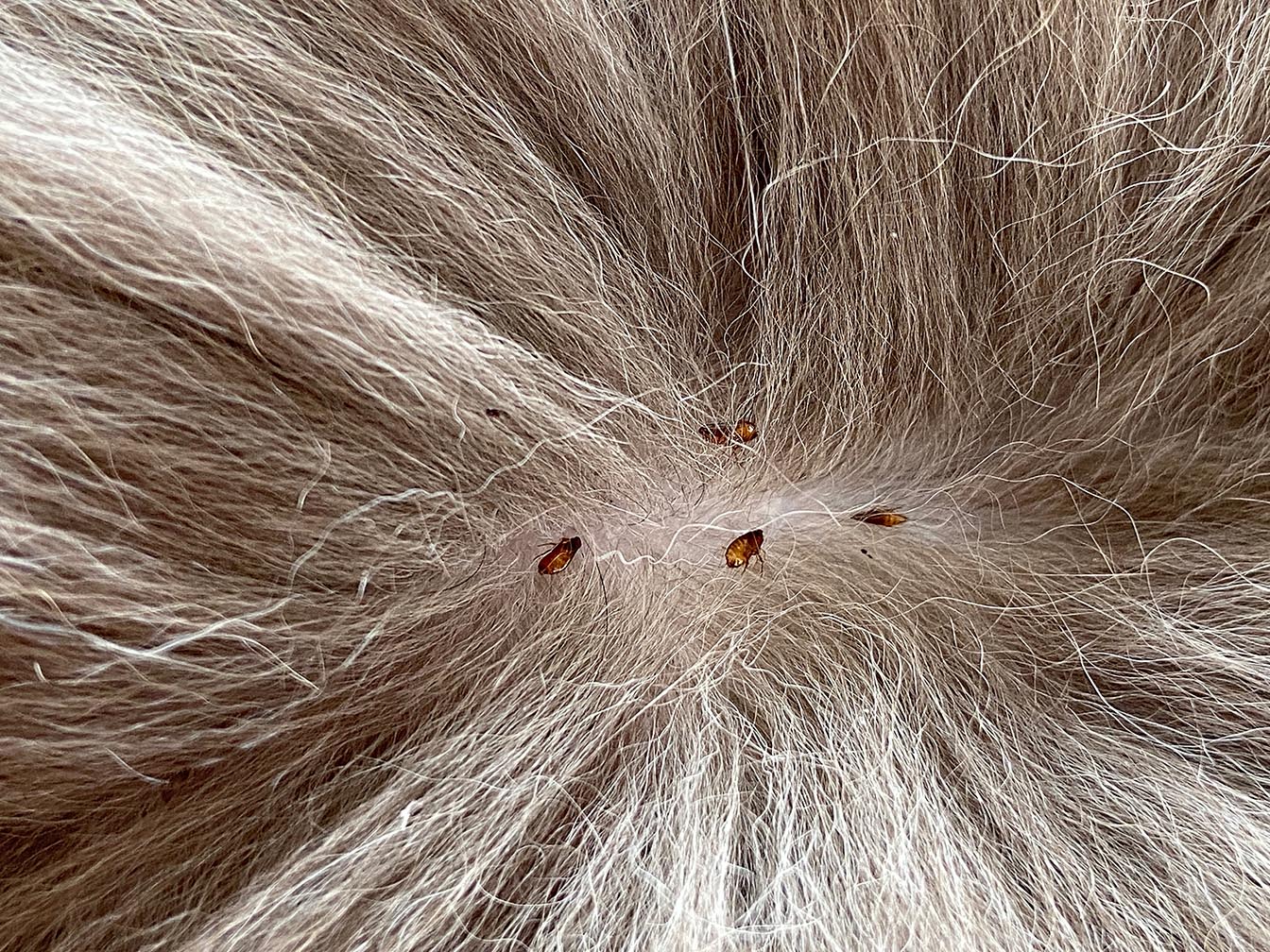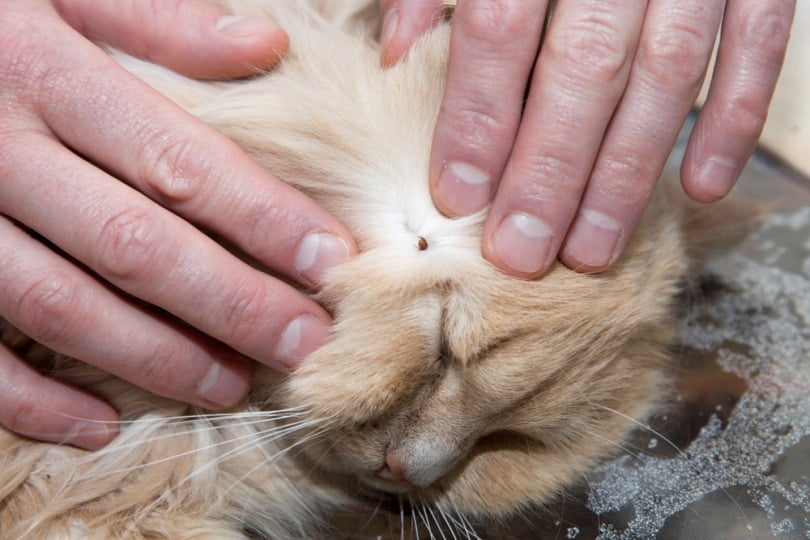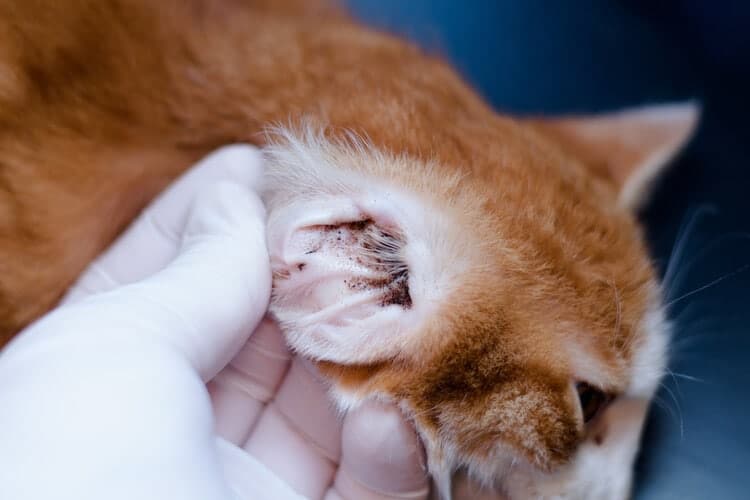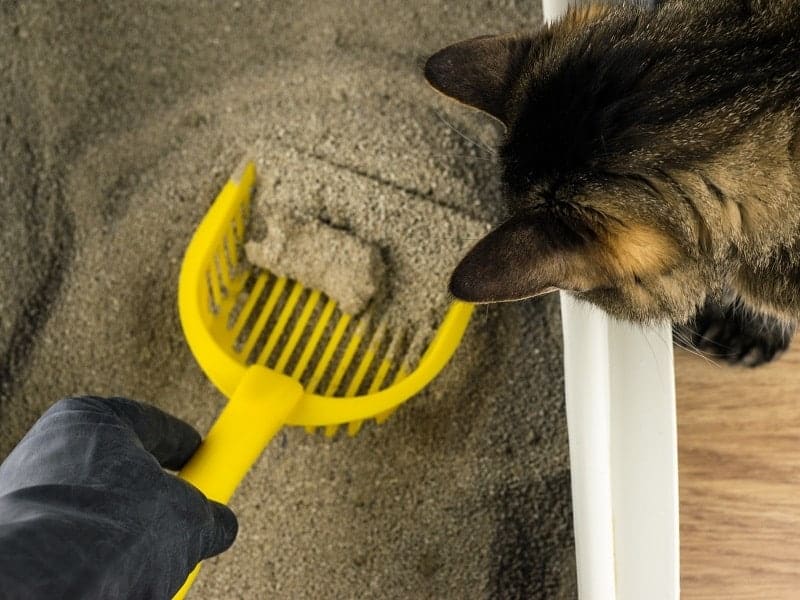No one likes to think of worms and parasites infesting their pet cat. But what exactly are they, and what are the most common ones we see in cats? “Parasite” is a general term for an organism found on the skin and includes mites, ticks, or fleas. Worms, on the other hand, live in various parts of the intestinal tract.
Many cats get parasites or worms from living outside and the environment they live in or from catching prey. Sometimes, cats get parasites from other cats or dogs. Rarely do cats get parasites from people, nor do they bring them into the house.
There are many types of worms and parasites, and each is unique. Read on to learn more!

The 6 Most Common Worms & Parasites in Cats
1. Fleas

Most people have heard of fleas. In many instances, fleas are easy to spot and diagnose at home. The same fleas that affect dogs affect cats, and they can bite humans, too! Cats generally acquire fleas by exposure to another cat, dog, or other outdoor animal that has them.
While there are multiple types of fleas, the cat and dog flea is called Ctenocephalides felis. Cat fleas carry risks that many people aren’t aware of. Aside from being itchy and annoying, cat fleas can also carry diseases.
Cats that ingest fleas while grooming can develop tapeworms. Fleas can also cause “cat scratch fever,” which infects humans and causes lymph node swellings and fever from a bacterial infection. Likewise, fleas can cause anemia (lack of red blood cells), which can even lead to death—especially for kittens.
Generally, cats that are worse off can have an allergic reaction to flea bites. In these instances, even a single flea bite can cause scabbing, itching, and discomfort.
2. Ticks

Ticks are insects that are picked up from surrounding plants, which can cause concern if your cat goes outside regularly. Although many types of ticks exist, only a few can infect cats, and they tend to vary by geographic location.
If you find your cat with a tick, the removal is key. Remember that ticks can carry other diseases, such as Lymes’ disease, so prompt and accurate removal is important. Contact your vet first to find out how they want you to proceed. Some will have you bring your cat in for this.
If you need to speak with a vet but can't get to one, head over to PangoVet. It's an online service where you can talk to a vet online and get the advice you need for your pet — all at an affordable price!

3. Tapeworms

Tapeworms, also called flat or ribbon worms, are segmented into small pieces. They live in the intestine of cats, where pieces of them will break off periodically to secrete eggs into the environment, and continue their life cycle. These segments can be seen by the naked eye and often look like grains of rice around your cat’s anus. When fresh, they can be seen crawling!
Cats acquire tapeworms through fleas or when hunting outdoors.
4. Roundworms

Roundworms look more like true worms; they are round and often many centimeters long. They produce eggs that are invisible to the naked eye, unlike tapeworms. Cats can get roundworms through hunting or from their mother. They can also get them through other infected cats in the household.
5. Giardia

Giardia is a type of parasite called a protozoan. They are too small to see with the naked eye. They are generally contracted by ingesting contaminated feces.
6. Ear Mites

Ear mites are barely visible to the naked eye. They live in the ear canal and exist on ear wax and other secretions.
What Are the Clinical Signs of Worms & Mites in Cats?
Worms can cause various clinical signs, including itching of the affected area, discharge from the affected area, diarrhea, or skin conditions if they are present on the skin.
How Are Worms & Parasites in Cats Treated?
Often, the best option for treatment is a prescription from your vet. This can be in pill or liquid form or even a topical treatment applied to your cats’ skin every 1 to 3 months. Sometimes, it may take two medications to treat the issue since some will only treat fleas or worms, but not both.


Conclusion
Even the most common worms and parasites in cats can be daunting. That is why knowing more information about them can certainly help with identifying if an issue is present. Don’t ever hesitate to contact your vet if you have questions. And, if you think your cat may have a worm or parasite, take a photo or video, and grab a stool sample or hair sample to bring to your vet. They can help identify what is going on, and the treatment for your cat can begin much sooner.
Featured Image Credit: Maja Marjanovic, Shutterstock




















